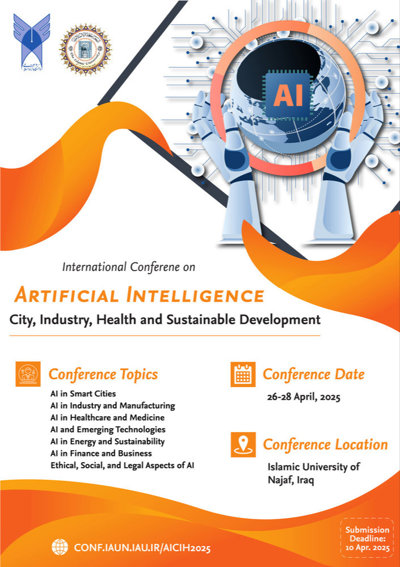0% Complete

نویسندگان :
کلمات کلیدی :
چکیده :
لیست مقالات بایگانی شده
علی سالم دزفولی - محمود جورابیان - ناصر حمیدی - مجتبی آزادی اردکانی
Bahar Asgari - Hamid Rastegari - Vahid Nejati
Habibollah Jafari - Abdolamir Karbalaie
Marziyeh Tourani - Hadi Bahadori
ABBAS SEIF - Hamid Radmanesh
Fatemeh Alimoradi - Zahra Alimoradi - S. Mohammadali Zanjani - Ghazanfar Shahgholian
Sina Sajadi - Mohammadreza Fatehi - Mohammadreza Amiri - Seyed hossein Hosseinian


